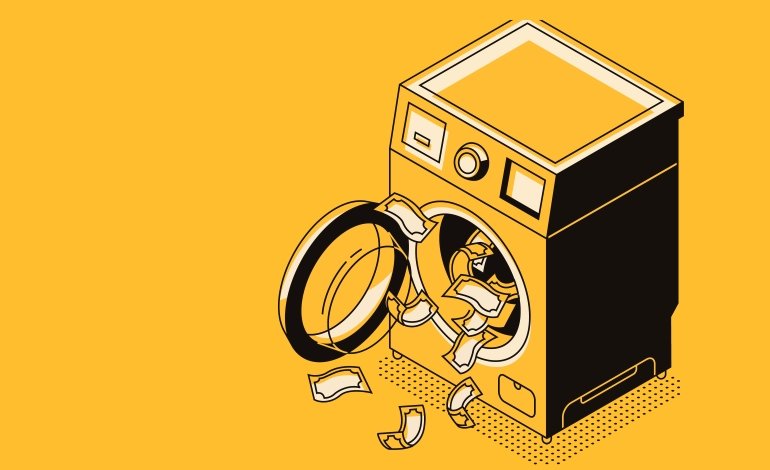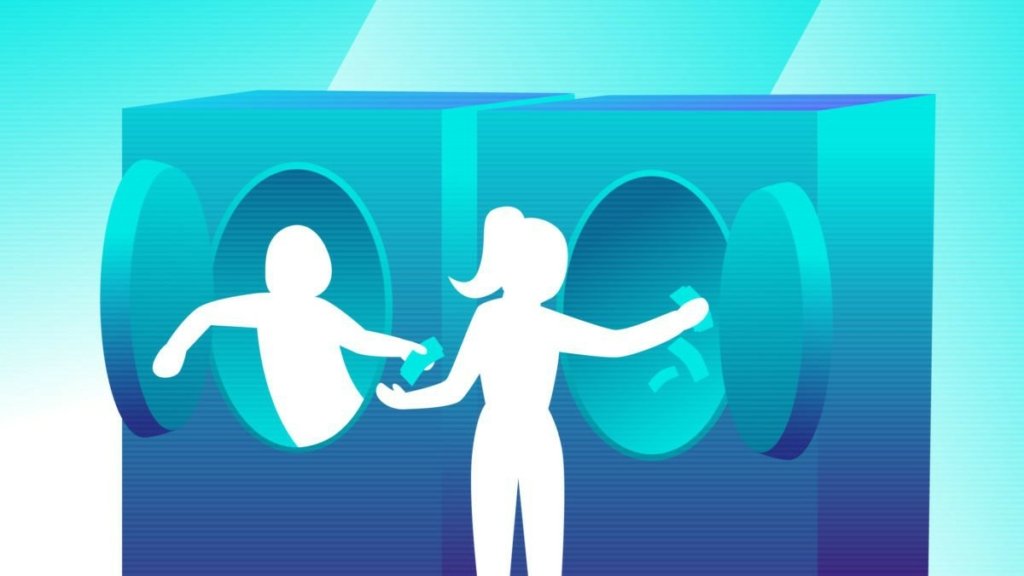Hoo boy, we’re about to talk about wash trading scams. I can see the intenses intrigue all over your face! These kinds of investment scams look a little different in the crypto world than they have looked in the stock trading world, but rest assured that wash traders are alive and well in crypto — especially in the NFT space. In some places, it’s becoming a real problem. But what exactly do wash trading scams look like in crypto and how does that affect your NFT investing strategy?
If you don’t know what wash trading is, a simple way to describe it is when trading volume is artificially inflated by a single party or colluding parties making trades back and forth to themselves. Maybe you could think of it as getting a friend to bid up your lot at an auction so whoever ends up buying it has to pay a price higher than the market would have naturally set. That’s not a perfect analogy but why else are we here other than to explain more fully? Proceed.
What is wash trading and is it illegal?
According to the CFTC (Commodity and Futures Trading Commission), wash trading is “Entering into, or purporting to enter into, transactions to give the appearance that purchases and sales have been made, without incurring market risk or changing the trader’s market position.”
This kind of market manipulation can be done by buying and selling from yourself to inflate volume. It can also be done by trading back and forth between a buyer and a broker to mislead the market. It has been illegal in the stock market since 1936 when commodity traders were doing wash trading scams to pump prices and create a bigger short opportunity for themselves. By making exchanges liable for benefiting from investment scams like these, regulations incentivize intermediaries to monitor potential bad actors in the market through forced KYC.
Even though wash trading is illegal in traditional markets, the crypto world and NFT investing are still largely unregulated. There are questions as to whether it should be illegal or whether the crypto world can create ways to inherently curb the practice. For example, a Chainalysis report showed that much of the wash trading scams happening in the NFT space were not actually profitable for the scammer because gas fees are too high.
INCREASE EXCHANGE VOLUME
Some exchanges have been accused of wash trading to inflate volume and create a false sense of credibility for the exchange. Various reports have shown more than 90% of trade volume on some exchanges was inflated. Plus, if an exchange offers some kind of trade volume reward for traders, users are incentivized to wash trade to get more rewards. This is what seems to have happened when the LooksRare NFT marketplace opened in 2022.
Increase project volume
NFT creators can also use wash trading to pump the price of their collection and generate more excitement in the market. Melania Trump has been suspected of doing a wash trade to buy her own NFT which she was auctioning. Some believe it was less to pump the price and more to save face because the NFT didn’t have the market value she hoped it would. The danger with wash trading scams on blockchain, though, is that transaction records are possible to trace, if not easy. Selling something to yourself can be difficult to hide.
Create fake arbitrage
Similar to trying to pump the price of a creator’s own project, sometimes traders try to pump the price of an NFT they hold to create greater arbitrage on a real sale. This is what happened with CryptoPunk 9998, which “sold” for $532 million. After some blockchain detectives examined the trade, however, it was clear that a flash loan was used by the trader who borrowed $532 million, bought the NFT from himself, and paid back the loan in the same transaction, thus incurring no market risk — a wash trade.
Reduce gains for tax break
Another way wash trading scams can be used is to realize capital losses and therefore reduce taxes. By selling at a loss, reporting that loss on your income tax, but buying back the same asset, some people try to get a tax break. This type of trade is prohibited by the IRS, however, and even if investment scams in crypto are largely unregulated, tax audits are definitely still in place for crypto investors.
How to avoid scams
Even though blockchain is transparent and transactions are traceable, it’s not necessarily obvious or easy how to vet a trade by looking at the blockchain record. Especially for average people trying to get into NFT investing. For this reason, it can be a little tough to spot wash trading scams. But there are ways to avoid getting the short end of the stick with this and other investment scams.
One of the best ways to do your due diligence is…well — to do your due diligence. Meaning, know the market, know what unusually high prices look like, learn to recognize when trades seem out of the ordinary, like transactions in sets of twos and threes like in the early days of NBA Top Shot.
Here are a few things to check off your list when doing your research for your NFT investing:
- Check transaction history — if you know how and want to spend the time on it
- Know the market value of the NFT or similar NFTs
- Use tools like HelloMoon.io to look at on-chain activity and identify suspicious volume
- Follow analysts and creators on Twitter who have an interest in keeping the reputation of the NFT market or their own projects
- Use marketplaces that are trying to spot wash trading and stop it
Remember that the more loose you play with your NFT investments, the more you can lose. Do your research, know what you want, and only buy what you know you won’t regret.
The outlook for wash trading scams
There will always be different investment scams to look out for. If it’s not wash trading scams, it’s something else. And I would not be surprised if regulation eventually catches up with NFT investing and the rest of crypto. Until then, be wise, be careful, and pay attention to what you’re trading. If you do happen to come across any wash trading scams or other suspicious investing scams, you can report it to the exchange. Many of them, like OpenSea, have a place to report suspicious activity. You can also consider new tools that are always being developed to clock scammy behavior like Scour, which attempts to verify NFT trades. The NFT investing world doesn’t have to be scary, just use caution and learn faster than the bad guys.
About the Author

Michael Hearne
About Decentral Publishing
Decentral Publishing is dedicated to producing content through our blog, eBooks, and docu-series to help our readers deepen their knowledge of cryptocurrency and related topics. Do you have a fresh perspective or any other topics worth discussing? Keep the conversation going with us online at: Facebook, Twitter, Instagram, and LinkedIn.





